Helical focuser
Thomas Gade - March 2012Many photographers still have different magnification lenses in their collections. The darkroom has long been discarded, but these once-expensive, highly corrected lenses are still in the drawers. Good lenses are almost free of distortion and very sharp. With an adapter and a bellow these lenses can be connected to a digital SLR, but this combination is unhandy.


Better would be the use of a tube with a focusing mechanism. Something like that is hard to find and expensive and makes the further use of magnifying lenses economically meaningless. An alternative is the conversion of existing technology, which is sold cheaply on the second hand market. There is a 2x teleconverter with also functions as a varibale extention tube for different cameras. It is offered primarily under the name Soligor C/D7, but also under other brand names. It is important to ensure that the word behind C/D7 is 'macro' because there are other type out there without the internal focuser. It is relatively easy to remove the internal part of it. With a bit of technical skill we get a solid Helical, or a variable spacer. For 30 to 60 € the Soligor C/D7 should be available on eBay.
The following images show on
their left sides an unmodifyed Soligor C/D7 Tele-/Macroconverter
and next to it one which internal parts have been
removed. The Soligor C/D7 exists with various
mounts. Both Soligors I've used have the Pentax-K
connection. I don't know if there are Soligors
C/D7 with the M42 thread. They would be the most
versatile for our purpose. There are numerous
adapters to connect M42 to almost any camera or
lens.

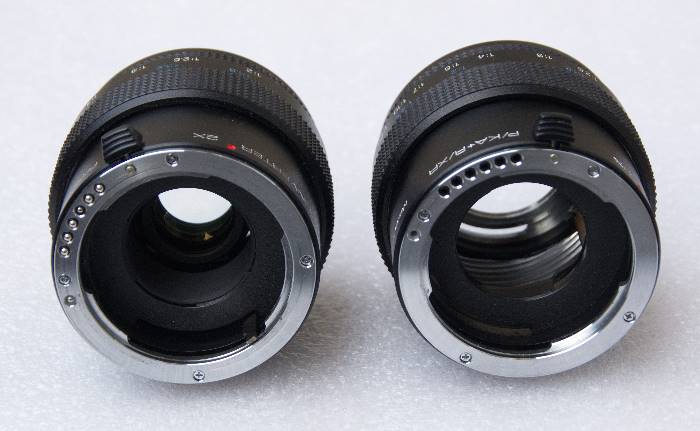
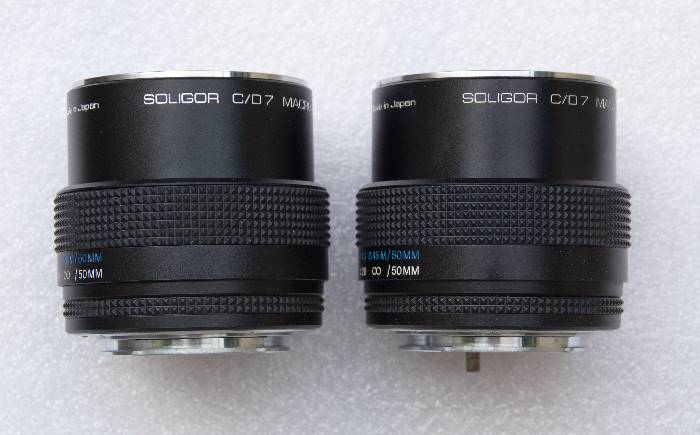
The photos show the stroke of the macro worm.
It is about 16 millimeters. The preset of the
correct distance is done with extension tubes.


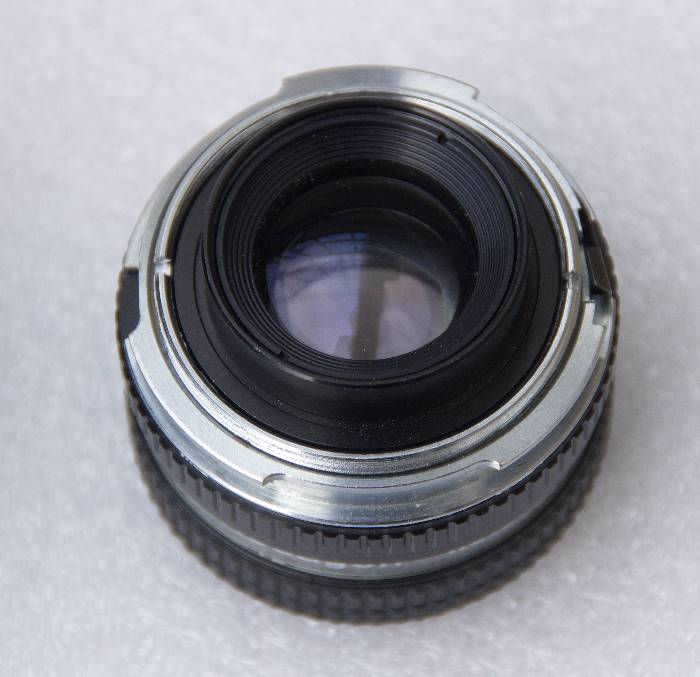
A 105mm enlarging lens from Rodenstock is provided
with a Pentax K adapter and can be mounted on
the macro worm. With extension tubes a favorable
distance between the lens and camera body is elected.
Focusing is done with the helical focuser.
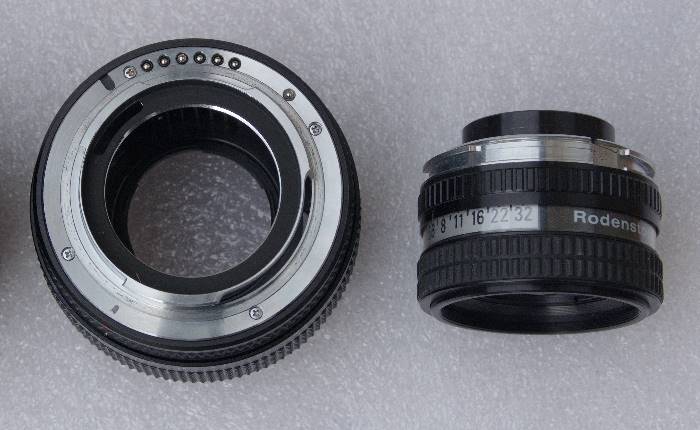

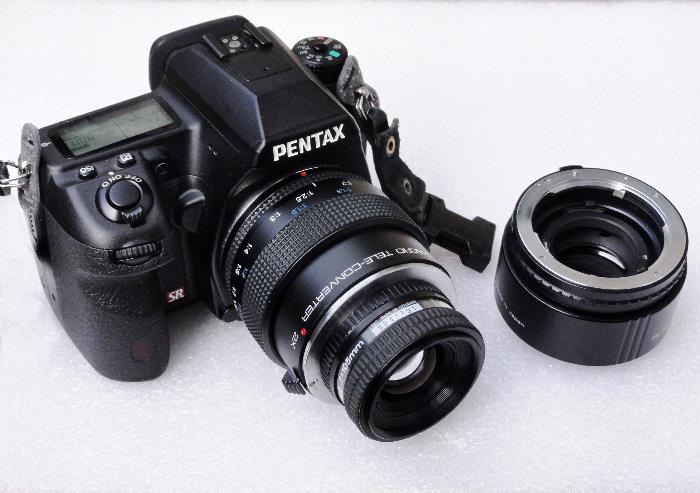
Done! With the very sharp, almost distortionfree
5.6 / 105mm Rodenstock lens magnification Rodagon
can be photographed.
--------------------------------------------------
Examples - Rodenstock Rodagon 5.6/105 mm
Image 1
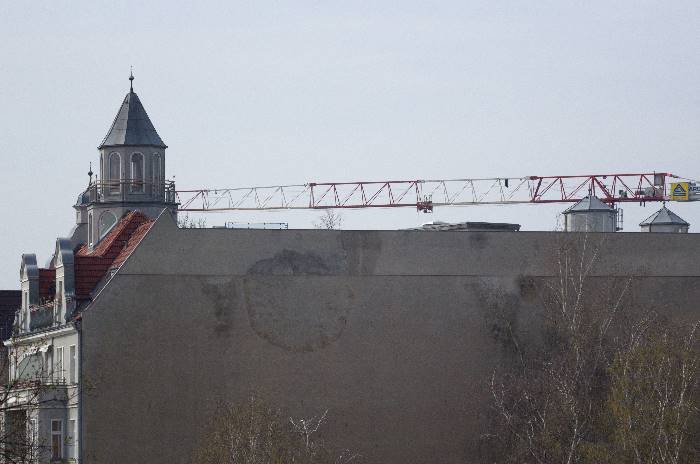
Pentax K-5 with 5.6/105 Rodenstock Rodagon, F 8, ISO 800, 1/6400 second
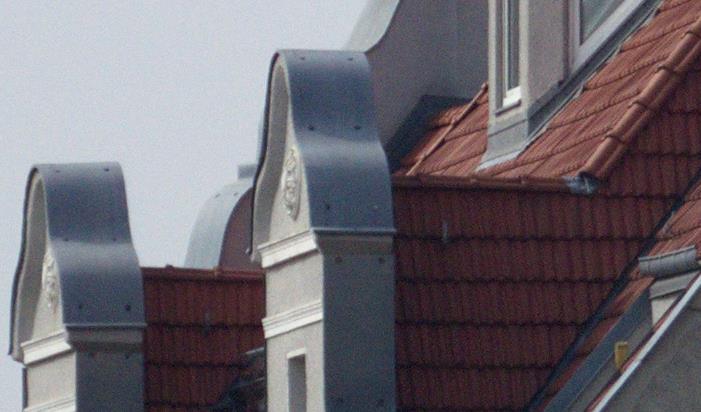
Crop from the lest side. There is no trace visble of colored edges. The lens is very good.
Crop / Close up: Our test subject was an artificial bird. It is approximately 7.5 cm (3 inches) high.
Image 2

The second picture of the head of the bird from a shorter distance was taken with aperture 11. In order to minimize camera shake, the ISO value 800 has been set. The exposure time was 1/500 second.
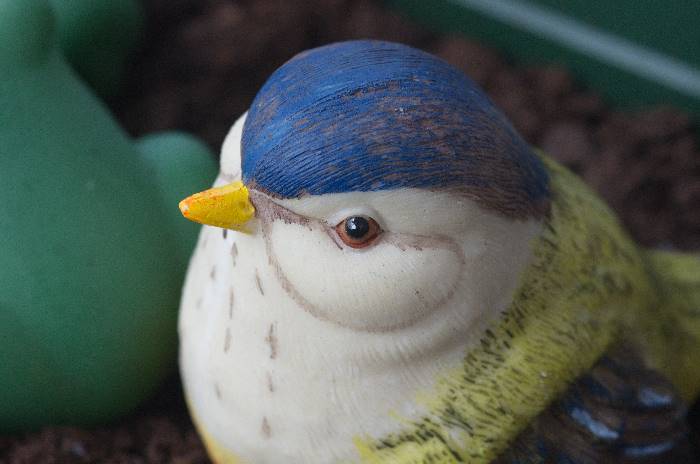
The image shows the high resolution of the lens.
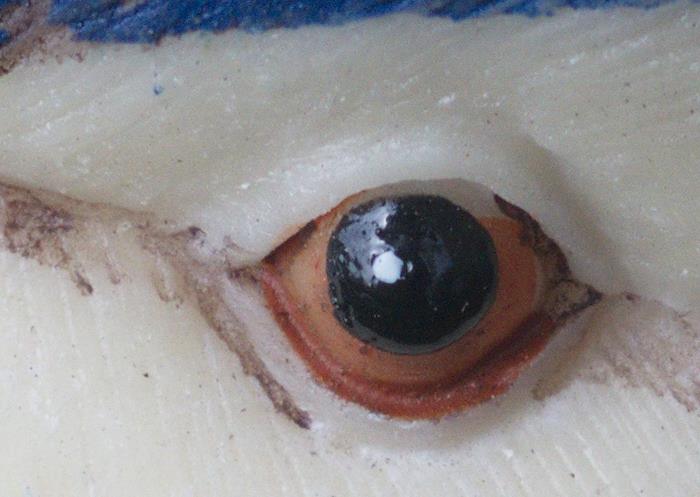
© Thomas Gade